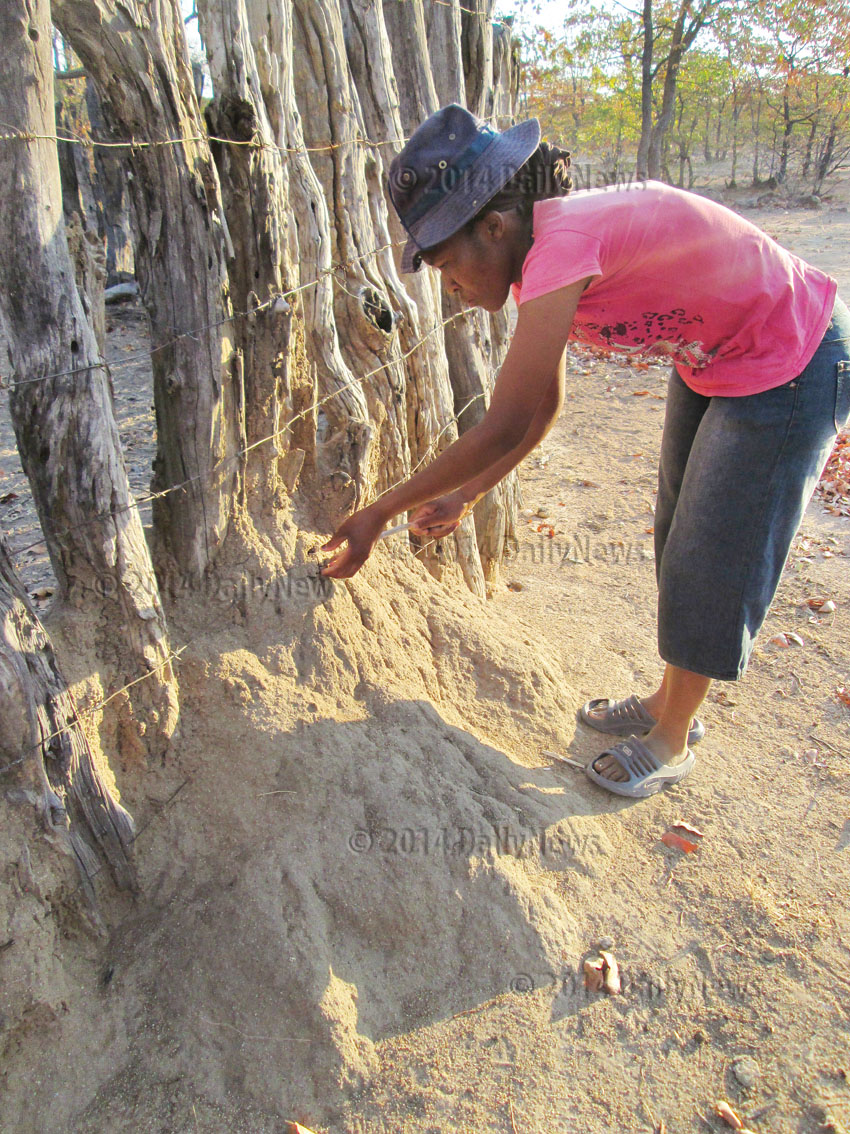Of women and soil eating
09 Jul 2014
Twenty-eight-year-old Neo Thobane of Tutume village in the Central district says whenever the rainy season arrives or she is watering her plants she feels like eating soil.
“When I water my plants, the soil will smell really good and I would have a strong urge to put some in my mouth,” says Ms Thobane an interview, adding that she eats soil to boot out anxiety and the cravings.
Doubtlessly, she believes that she learnt the habit from her aunt she used to stay with and one who would eat soil every day as if it was the only thing that mattered to her in life.
“I used to escort her to termite mounds and I would end up eating soil too; but the practice was never without some discomfort because I would often feel pains in my stomach after eating a lot of soil,” she remembers.
But, why do some people, especially pregnant women turn to the nearest anthills or termite mound to eat soil?
Eating soil, which is scientifically known as geophagy or geophagia, is a common and widespread practice throughout the country and possibly beyond, especially amongst pregnant women.
This behavior is defined as the practice of eating earth or soil-like substrates such as clay or chalk, and, for Ms Thobane, the urge to eat soil becomes so strong that she cannot have food before visiting any of her usual mounds.
No matter how many times she would try to stop the habit, hardly a week she is back at the anthills to nurture her habit.
“I have tried buying iron supplements as I people say soil eating is caused by the lack of iron in the body, but even now, I continue to eat soil,” she says.
Another woman, Ms Motho Goitsemodimo, a mother of two, says she started eating sub-surface clay during the first trimester of her pregnancy as she believed it helped with the symptoms of morning sickness.
“After eating soil, I would feel better and I have never stopped the habit,” says Ms Goitsemodimo, adding that she was living in Gaborone when she started the habit and had to buy the clay at the main mall from an elderly woman who sold different types of soil,” she says.
She too has tried many times to stop, but each time she passed by the main mall she could not stop herself from buying.
Contrarily, the Principal Registered Nurse at Tutume Primary Hospital says soil eating is a habit that people have control over if they want to.
Ms Molefhe says soil eating is also be an instinctive way of supplementing diet deficient in minerals such as zinc and iron.
Soil can deplete iron from the blood and the urge will keep growing until one does something about it; it can also cause excessive tooth wear, she warns, adding that soil can also contain eggs and larvae of parasites, which can lodge permanently in people’s intestinal tract.
She further cautions that the habit can also cause complications to pregnant women by reducing the red blood cells in their body that carry oxygen; thereby causing anemia, a condition where there is not enough red blood cells to carry adequate oxygen around the body.
Furthermore, she notes that this can make one feel tired at times and can also cause a disease called tetanus, which is caused by a bacteria found in the soil.
Ms Molefhe says a person can substitute soil by eating hard food such as sweets, biscuits and chocolate.
She says the soil is not digested, but forms a layer of stones in the body, which can end up causing kidney stones. ENDS
Source : BOPA
Author : Clara Thamae
Location : TUTUME
Event : Interview
Date : 09 Jul 2014







